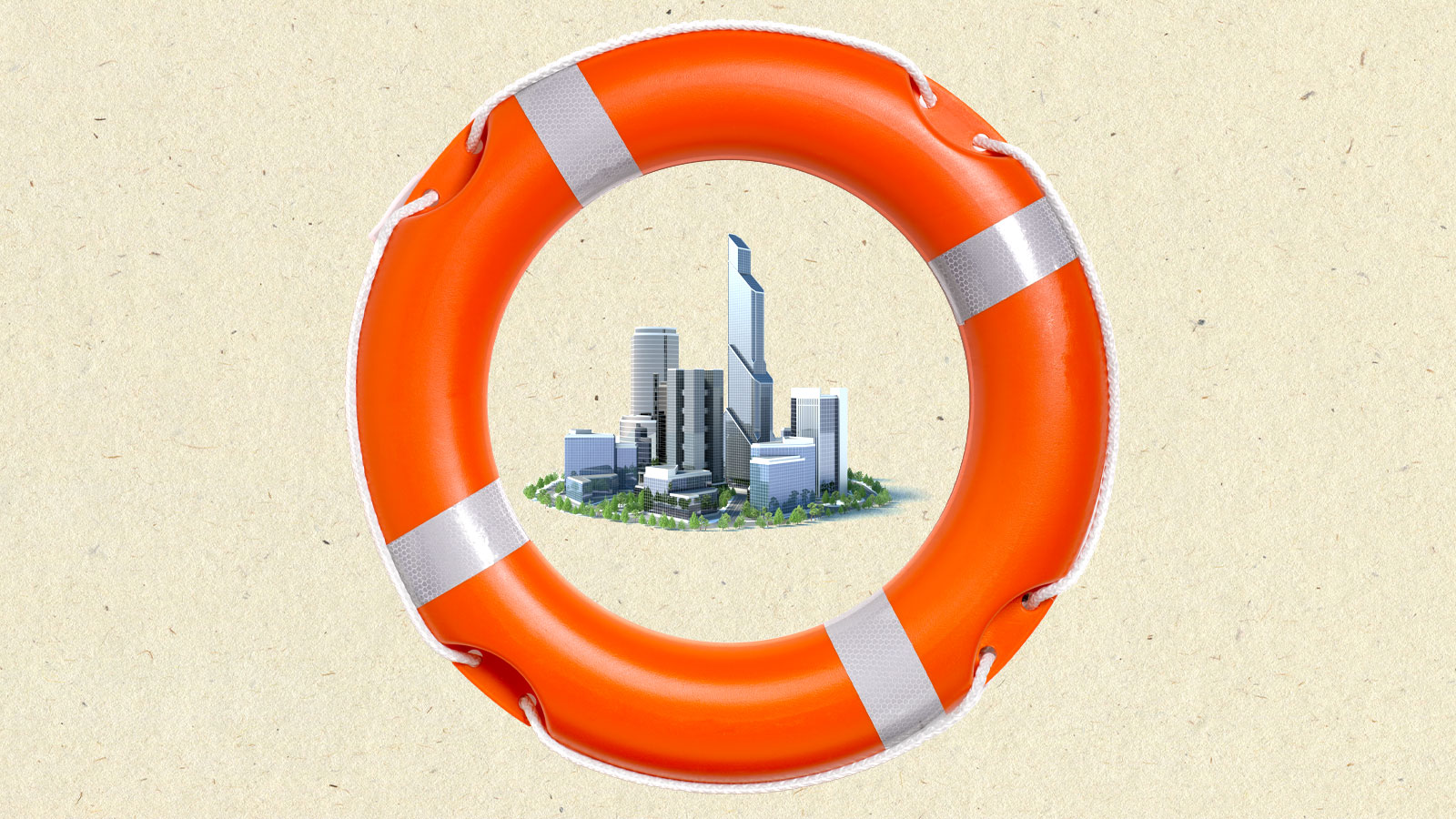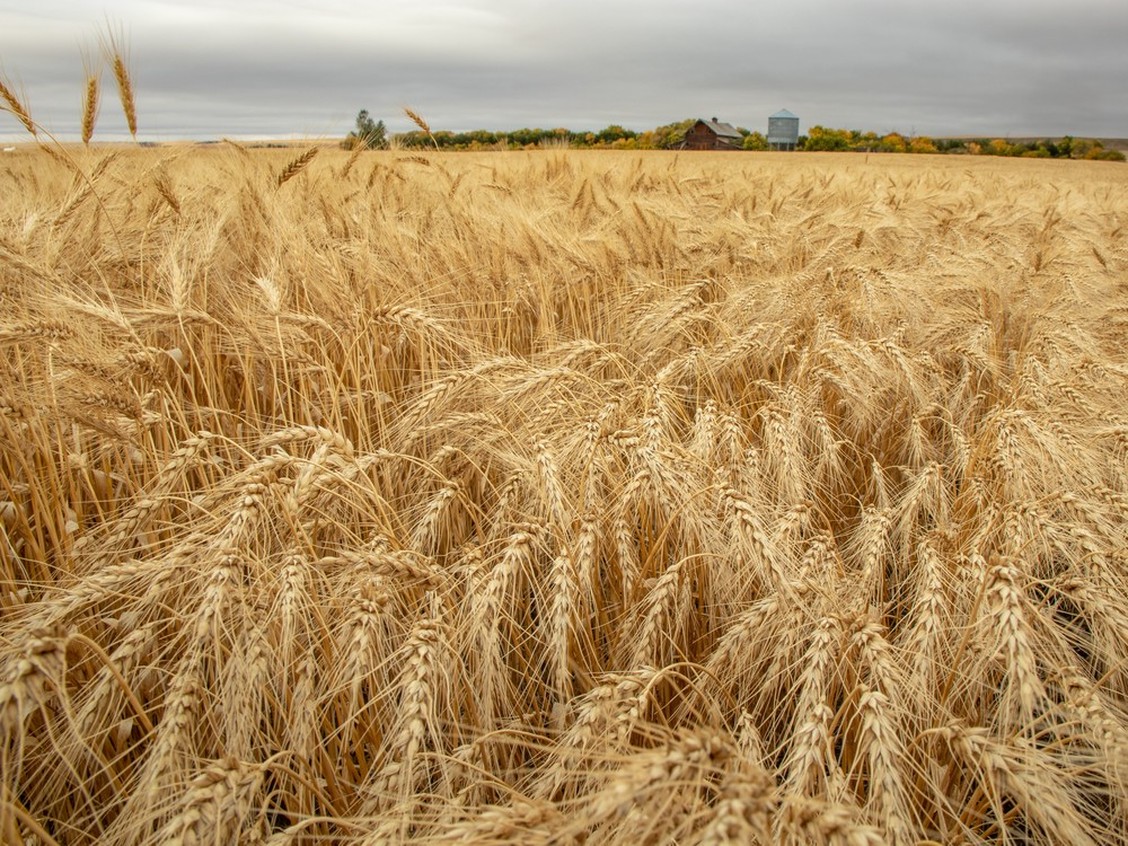
Your weekly guide to Sustainable Investment
Looking for access to impact investors for fundraising?
TBLI's Capital Connect service might be just what you are looking for.
Through our Capital Connect service, TBLI researches potential investors and make introductions to the most appropriate investors using our CRM system with curated selections and introductions. Capital Connect offers a direct way to tap into TBLI’s 25-year-old network of impact investors and reach your ideal potential investors through our matchmaking algorithm.
More info
Join TBLI Circle - Community for likeminded individuals
Do you have an article you'd like us to share in the TBLI Weekly? Make a suggestion here
ESG investing projected to reach $53 trillion by 2025

COP28 to supercharge interest in sustainable investing practices
With the UAE hosting the pivotal COP28, the intersection of climate policy and market strategy is more prominent than ever. Discerning traders are positioning themselves to take advantage of specialized financial products that are both climate-forward and financially astute, including the Green Index, the ESG Index, the EV Index, and the EUA Futures CFDs.
These advanced trading instruments and sustainable indices hold a strategic importance in the context of COP28’s environmental mandates, as investors apply non-financial factors as part of their analysis process to identify material risks and growth opportunities, according to the CFA Institute.
“ESG assets are anticipated to surpass $53 trillion by the year 2025 on a global scale, which constitutes over one-third of the projected total assets under management, amounting to $140.5 trillion”, says Ritu Singh, Regional Director of StoneX Group Inc., adding: “This significant growth is driven by a confluence of factors, including the impact of the pandemic and the sustainable recovery initiatives in the United States, European Union, and China.”
On a regional level, the UAE and GCC markets stand at the forefront of promoting environmental, social, and governance (ESG) practices. In fact, a recent publication by PwC states that “the UAE has been making significant strides towards sustainability and ESG integration, setting a new standard for the entire region”.
In this context, investors have been increasingly interested in the Green Index and the ESG Index, which they can trade while gaining exposure to ESG companies in an index, by purchasing an index mutual fund or exchange-traded fund (ETF) that seeks to replicate the performance of that index.
From one hand, the ESG Index provides a comprehensive framework for evaluating and identifying companies based on the sustainability of their business practices. It serves as a critical benchmark that integrates a company’s environmental impact, social responsibility, and governance standards into its valuation. With COP28 setting new sustainability standards, the ESG Index may serve as a leading indicator for companies likely to outperform in a regulatory environment increasingly favoring sustainable practices.
Read full article
After the Storm, Malawi’s Farmers Face a Precarious Future

When Cyclone Freddy walloped southern Africa last March, Malawi’s farmers — mostly women — lost their land, livestock, and livelihoods. Already desperately poor, they are struggling to recover in a nation considered one of the world’s most affected by extreme weather events.
t takes Ellen Sinoya, 43, two days to walk to work. She leaves her three children with their grandmother at home in Mwenye, a small village in southern Malawi’s Machinga District, then hikes across the border into Mozambique, stopping only to sleep by the side of the road. After working for a piece rate on a commercial farm for two or three days, she brings home 5,000 Malawian Kwacha ($3.00) — enough to feed her family on maize bran for two weeks. Then she makes the long walk again.
A year ago, Sinoya grew maize and rice on her own one-hectare farm, just yards from her doorstep. But in March 2023, Cyclone Freddy, the strongest tropical cyclone ever recorded, destroyed her home and land.
“I had to abandon my home,” says Sinoya. She returned in August, after living for five months in an evacuation camp, only to find her lands saturated by water. “We cannot grow rice this year because the water has ruined the land. We cannot grow maize because the soil is contaminated with sand. Nowadays, I depend on mangoes, or else we eat kalangonda beans, but these are poisonous unless you cook them well. Every day I worry what my children will eat.”
Cyclone Freddy lasted a record 38 days. The storm barrelled 5,000 miles across the Indian Ocean, pummelling Madagascar and Reunion before striking the African mainland. It swirled over southern Mozambique and Zimbabwe, re-intensified over the warm waters of the Indian Ocean, then returned to strike northern Mozambique and Malawi.
In Malawi’s densely populated southern region, Cyclone Freddy dropped six months’ worth of rainfall in six days, triggering floods and mudslides that killed more than 1,200 people and displaced 659,000. The government’s Post-Disaster Needs Assessment claims total loss and damages exceeded $1 billion. More than 2 million farmers lost their crops as 440,000 acres of land were destroyed or washed away, and 1.4 million livestock were drowned, starved, or lost.
Malawi is among the five nations, worldwide, most affected by extreme weather events, according to the Global Climate Risk Index. The country experiences distinct wet and dry seasons, so climate phenomena like El Niño can disrupt normal rain patterns and lead to periods of drought. Its proximity to the Indian Ocean also makes it susceptible to cyclones and heavy rain. Poverty and deforestation exacerbate these weather impacts for the nation’s smallholder farmers, who produce 80 percent of the food consumed in Malawi.
Eight months after the cyclone dissipated, Malawi’s food system is still reeling. “[Cyclone Freddy] caused soil erosion and degradation,” says Paul Turnbull, the World Food Programme’s (WFP) country director in Malawi. “This has not only affected the 2023 harvest but also has long-term consequences on the productivity of agricultural land. Soil erosion diminishes soil fertility and can lead to decreased crop yields. Some of the affected households have had to wait for another farming season to grow food.”
Many of those affected by Cyclone Freddy still lack a reliable source of food or income, and low agricultural output has also led to food shortages and increased prices nationwide. The price of maize — Malawi’s staple food — has quadrupled in the past 12 months, with a 50-kilogram bag now costing up to 36,600 Kwacha ($21.76). According to the Integrated Food Security Phase Classification (IPC), 4.4 million Malawians will require food assistance before March 2024, a 15 percent increase from last year.
Read full article
Why ‘climate havens’ might be closer to home than you’d think

A refuge isn't something nature hands us, but something we have to build ourselves.
Moving is never easy — and it’s even harder in the era of global warming. Beyond the usual concerns like jobs, affordability, and proximity to family and friends, people are now considering rising seas, wildfire smoke, and heat waves. According to a recent survey, nearly a third of Americans named climate change as a motivation to move.
Some are headed to “climate havens,” the places experts say will be relatively pleasant to live in as the world heats up, like Duluth, Minnesota; Ann Arbor, Michigan; and Burlington, Vermont. Researchers have pointed to the Great Lakes region, and Michigan in particular, as a destination for people seeking to escape the storm-ravaged Southeast or the parched Southwest. The Midwest holds special appeal with its abundant fresh water, cooler summers, and comparatively little risk from hurricanes and wildfires.
But as the federal government’s comprehensive Fifth National Climate Assessment detailed last week, there’s nowhere you can truly hide from climate change. This summer, historic wildfires in Canada sent unhealthy smoke swirling into the Midwest and Northeast, bringing apocalyptic skies from Minneapolis to Buffalo, New York, and all the supposed refuges in between. Heavy rain in July caused devastating flash floods in Vermont. Three years earlier, a ProPublica analysis had identified the hardest-hit place in the state, Lamoille County, as the safest county in the U.S. “It’s time to put the idea of climate safe havens to rest,” the climate news site Heatmap declared this summer.
Still, the new assessment demonstrates that some places are safer than others. The report says that moving away from more dangerous spots to less precarious ones is a solution that’s already happening — not only in coastal areas in the Southeast, but also in flood zones in the Midwest. The assessment also makes it clear that vulnerability is often created by city planning choices. Climate havens may not be something nature hands us, but something we have to build ourselves. And finding refuge doesn’t necessarily entail moving across the country; given the right preparations, it could be closer to home than you think.
“While the climate is going to change, how we respond as a species, as a society, as individuals, I think will really determine what is a ‘refuge’ for us and what isn’t,” said Vivek Shandas, a professor at Portland State University whose research focuses on how cities can adapt to climate change. Shandas, who worked on the Northwest chapter of the report, says that it points to how human choices — policies and urban design decisions — have either put people more in harm’s way or brought them greater safety.
Read full article
Farmers have no alternative but to use greenhouse-gas producing grain dryers, says southern Alberta scientist

As clean technology for drying grains is years away, the Senate should pass a private-member’s bill that would exempt the federal carbon tax from on-farm grain drying, says a southern Alberta scientist.
The Senate resumes deliberations Tuesday on the third and final reading of Bill C-234, an act to amend the Greenhouse Gas Pollution Pricing Act, after debate on the legislation was abruptly ended Nov. 9. The bill would extend carbon tax exemptions that farmers already have on gasoline and diesel to greenhouse-gas producing propane and natural gas for drying grain, and heating or cooling barns and livestock buildings.
Dr. Chandra Singh, Lethbridge College’s senior research chair in Agricultural Engineering and Technology, said that as a scientist, he acknowledges the effects of global warming on the planet, but farmers don’t currently have a viable alternative other than to use fossil-fuel powered dryers. Without those dryers, farmers risk losing their crops, he added.
“Any food that we produce should not be spoiled, because we have a huge population all over the world,” said Singh, adding Canada plays a role globally as a grain exporter.
The carbon footprint from losing all that went into producing those crops — the seeds, fertilizer and fuel used — would be “way more” than the carbon footprint of using fossil-fuel powered dryers, said Singh, who made his case for the Senate approving the carbon tax exemption for grain drying during a virtual presentation last month before the Senate’s standing committee on agriculture and forestry.
While southern Alberta is fortunate to start seeding and drying early, in the Peace region of northwestern Alberta almost all farmers are using high-temperature dryers because they are typically seeding and harvesting later, said Singh. And with some farms being upwards of 4,000 to 8,000 hectares, they need to dry a huge volume of grain and have limited time to do so, he said.
Singh estimated it would realistically be 10 years before clean technology is available to dry grain on farms.
“We don’t have anything coming in the near future,” he said.
Read full article
The Rise of Embedded Finance in Africa: Three Fintech Innovators Highlight its Potential to Boost Financial Inclusion and Business Growth on the Continent

By: BASIL MOFTAH - Next Billion
In Egypt, as in many African countries, there has been ongoing movement in recent years towards financial inclusion, digitisation and the fintech sector. The latest report from the Central Bank of Egypt indicates that these efforts are gaining momentum, as total ownership of transactional accounts has reached 64.8%. And the volume of electronic transactions in the Egyptian market increased to over EGP 6.4 trillion (US $207 billion) in 2022, up from EGP 4.2 trillion ($136 billion) in 2020.
The growth of digital payments and other fintech tools, and the regulatory progressiveness that has enabled it, are not only increasing financial access, they’re powering the business models of countless innovative companies across the country and the broader region.
One of the key ways fintech is reshaping business — both in Egypt and across emerging markets — is through the rise of embedded finance. The term refers to the placement of a financial product in a non-financial product, customer experience or platform. Examples of embedded finance include digital payment options or credit offerings that facilitate the purchase of specific products, or insurance that protects against damage to a newly purchased device. The development of embedded finance is revolutionising business operations across various sectors, particularly impacting businesses that would not traditionally have access to these financial services, like startups and small and medium-sized enterprises (SMEs).
At Nclude — an investment firm focused on fintech innovation and financial inclusion — we’re working with a number of portfolio companies that are incorporating embedded finance into their businesses. These companies provide a glimpse of the impact this emerging approach can make, not only in Egypt but in other economies across Africa and around the world.
In the article below, I’ll discuss how these local trailblazers are leveraging embedded finance to boost Egypt’s economy and provide a catalyst for digitisation and growth among other businesses, in sectors ranging from hospitality to agriculture and pharmaceuticals.
EMBEDDED FINANCE SOLUTIONS IN THE HOSPITALITY SECTOR
Embedded finance provides an effective solution to challenges within Egypt’s hospitality sector, including hotel, restaurant and catering businesses. Traditionally, these businesses have faced issues surrounding working capital financing and payment friction for the purchase of supplies. They generally must purchase their supplies from different vendors, making it hard to get complete visibility into the availability and pricing of various goods. Traditional payment procedures — i.e., those involving cash and checks — are often time-consuming and strenuous, eliminating the possibility of seamless transactions between these companies and their suppliers. Credit is also often difficult for these businesses to access, since many of them struggle to obtain suitable payment terms or working capital facilities, due to their size and the often-lengthy procedures of formal lenders in Egypt. In response, I believe the hospitality industry in Egypt must leverage embedded finance solutions to enhance these businesses’ credit management and payment procedures. By integrating these solutions into their platforms, businesses can revolutionise their operations and transform customer experiences.
One compelling example of the impact embedded finance can make in this sector is OneOrder, a technology-enabled supply chain platform catering to hospitality businesses. Recognising the value of embedded finance, it has optimised these businesses’ working capital by offering flexible credit terms to small and medium-sized merchants and restaurants, which are often left out of traditional financing options. But this credit doesn’t come in the form of traditional loans from OneOrder. Instead, these businesses get their “financing” as inventory: OneOrder provides the goods first without requiring payment up front, allowing the businesses to gradually pay off this inventory after they’ve sold it to end customers over the course of an agreed-upon time frame.
Read full article
Björk turns up the volume in attack on industrial salmon farming in open pens

Icelandic singer condemns ‘terrible suffering’ of salmon farming with proceeds from her new single with Rosalía going to activists
The Icelandic singer Björk has condemned industrial salmon farming in open pens as “extraordinarily cruel”, as she announced her debut song with the Catalan singer Rosalía, which will be available on Tuesday 21 November.
The pair will donate the proceeds of the single, a love song based on a recently recovered recording Björk made two decades ago, to activists opposing the controversial industry in Iceland.
In a message on her Instagram feed, Björk said she felt “blessed” that the Spanish songwriter had agreed to the collaboration and was donating her work to the “battle” against open-pen farms.
“This is a 25-year-old song of mine that I wrote and programmed inspired by a dancehall beat (the grandmother of reggaeton),” she wrote.
“Rosalía’s experiences with the genre and her incredible voice made her an obvious guest on the song. I feel blessed that she said yes and her team is donating their work and all proceeds to this battle.”
There was an “elegant resonance” to the fact that her voice was the same age as Rosalía’s on the recording, said the singer, who will be 58 on Tuesday. Rosalía helped her update the track, with production by Sega Bodega.
The open-pen salmon-farming industry has come under scrutiny in Iceland after revelations that thousands of farmed salmon had escaped, raising fears over the threat to wild salmon from interbreeding.
Earlier this month, the Guardian obtained film footage of diseased, dead and dying salmon on a farm after a sea-lice outbreak described as a “welfare disaster” by veterinary experts.